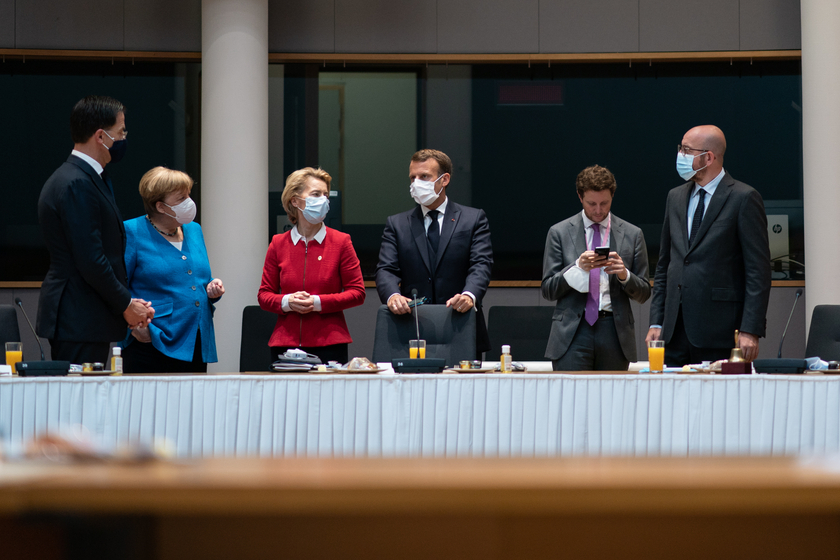For the first time, Europe will implement a recovery plan based on solidarity to face the crisis and meet social, economic and ecological challenges.
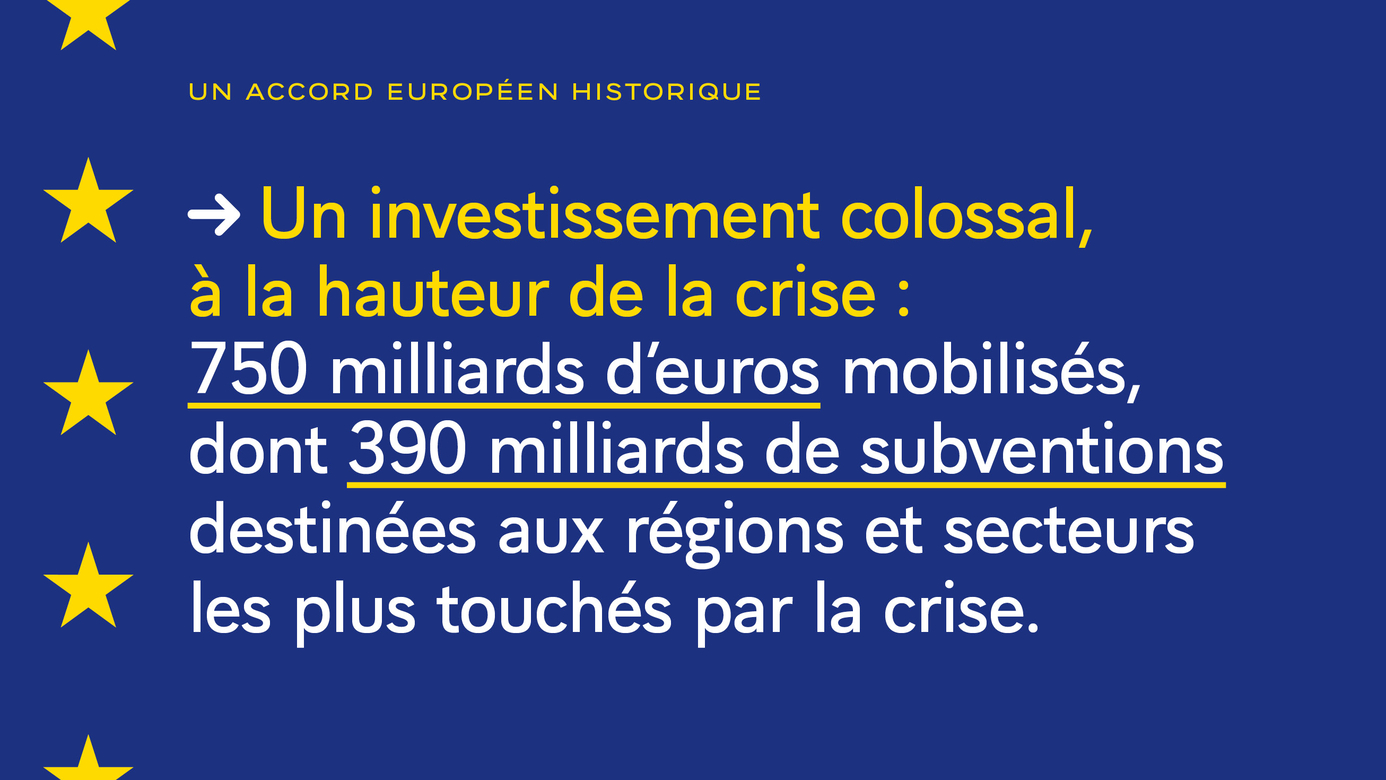
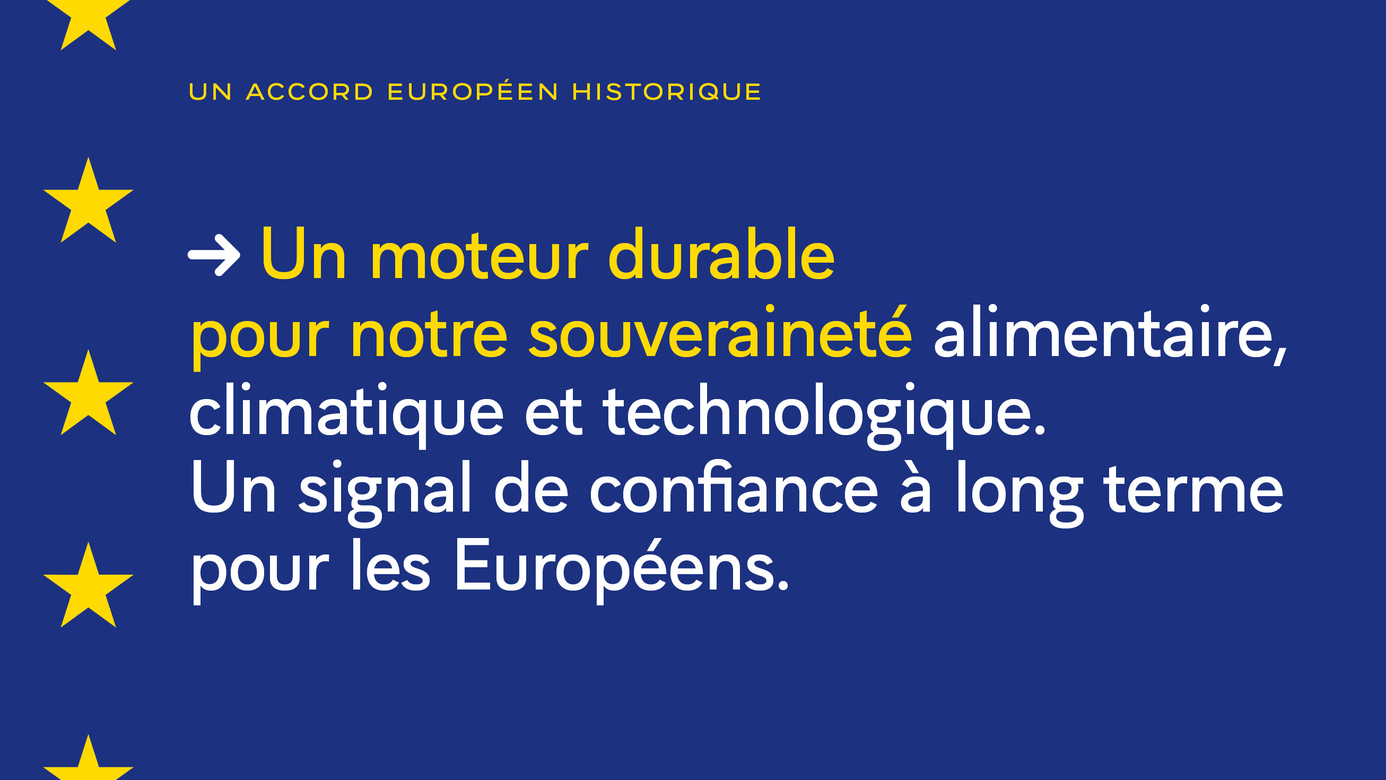
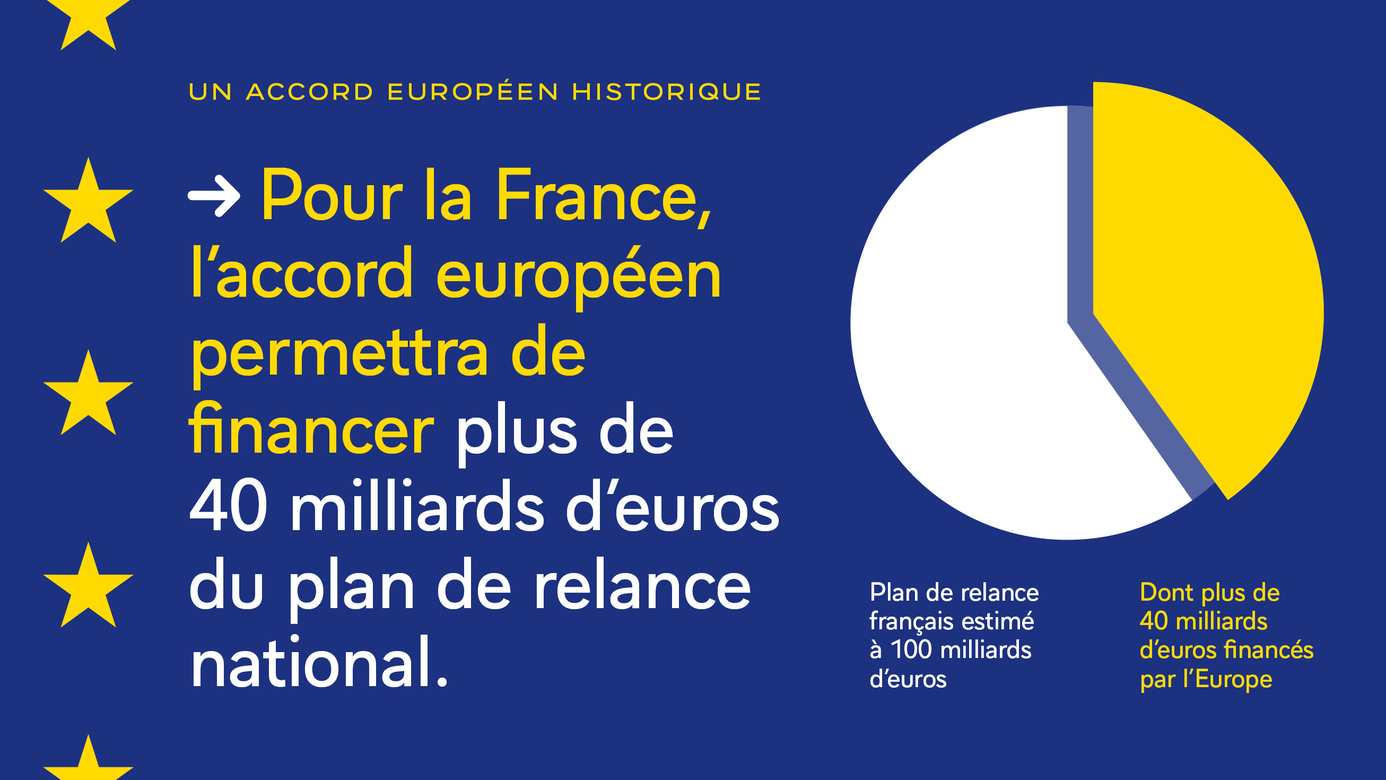
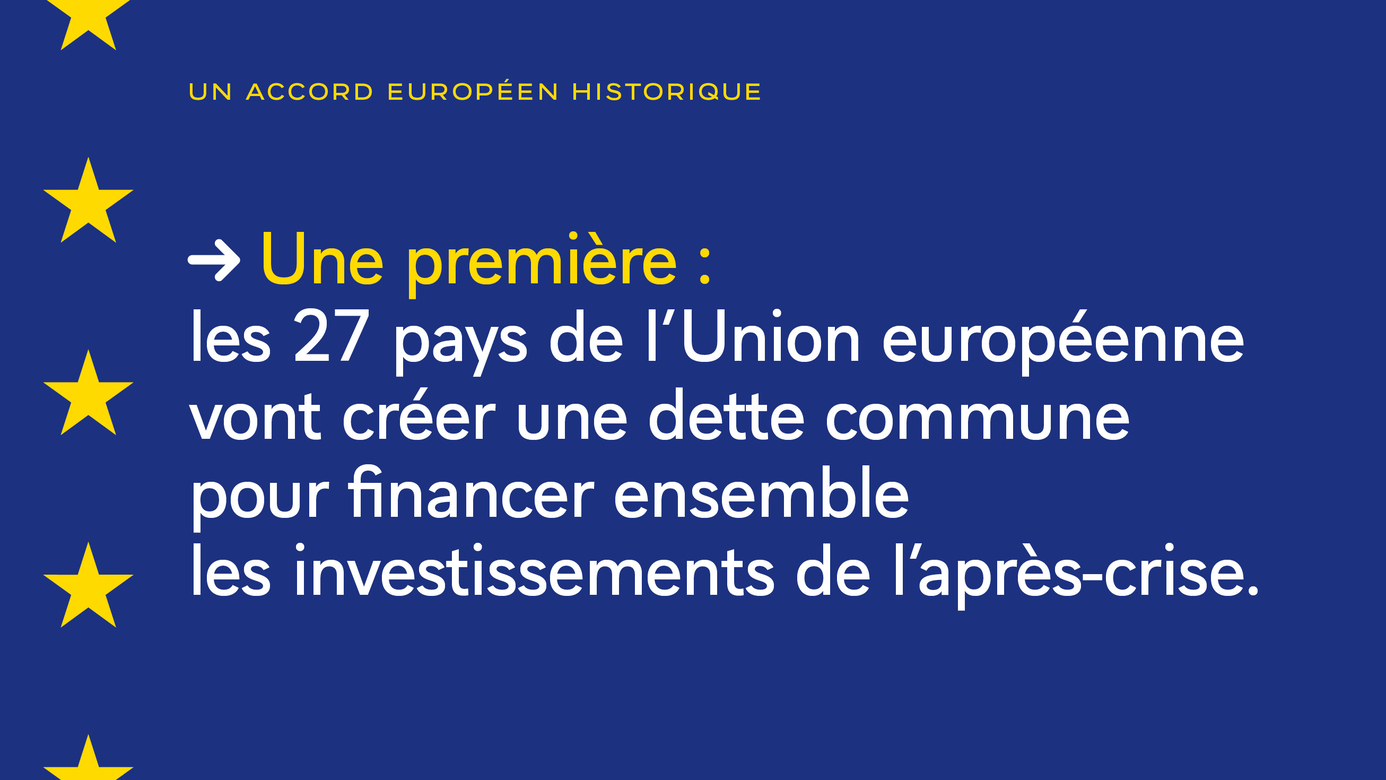
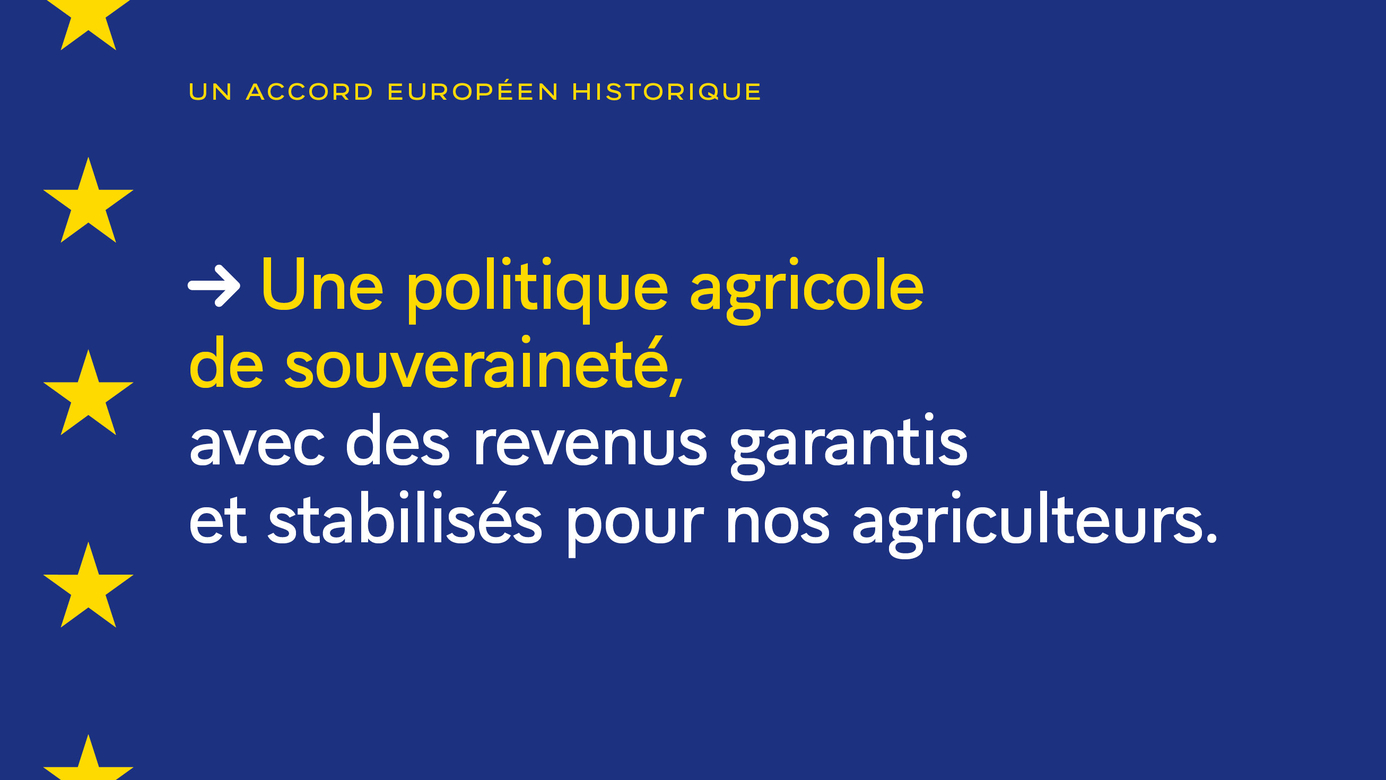
JOINT PRESS CONFERENCE BY THE PRESIDENT OF THE REPUBLIC AND THE GERMAN CHANCELLOR - EUROPEAN COUNCIL
21 July 2020 - Check against delivery
JOINT PRESS CONFERENCE BY THE PRESIDENT OF THE REPUBLIC AND THE GERMAN CHANCELLOR - EUROPEAN COUNCIL
Madam Chancellor, dear Angela, I’d like to start by expressing my condolences and sadness following the accident on the A7 motorway in France, and my thoughts are with the families of the five children killed, and the families of all the other victims whose lives are still at risk.
Following on from the presentation by Madam Chancellor, naturally I would like to thank President Charles Michel and President Ursula von der Leyen for their commitment, their work, and that of all their teams throughout all these days and nights, and of course to thank you, Madam Chancellor. As you said, it was not just one of the longest summits in history, maybe the longest, and our first physical meeting in several months, but it was above all a summit which has led to truly historic conclusions.
We have put in place a joint borrowing capacity, an inclusive recovery plan for the first time. We finally unanimously agreed on the budgetary objective of €750 billion in total, which as Madam Chancellor recalled, includes a subsidies budget of €390 billion, a substantial amount which will enable each country to fund a significant share of its national recovery plan.
This budget is slightly smaller than the Franco-German plan proposed on 18 May but I want to stress that the progress made in two months, which on a European timescale is very little time, has been remarkable. And in fact many of our colleagues told us that they were somewhat surprised by the Franco-German plan on 18 May. In two months, we have succeeded in building a consensus so that this unprecedented recovery plan can become a decision and thus a reality. It took effort and a spirit of compromise and I truly want to thank all our colleagues who made this commitment alongside us.
In total, with this recovery plan, we can almost double our European budget over the next three years. And it is this order of magnitude that we must keep in mind. And we must also recognize the progress achieved because in February, we had stalled with a budget which some wanted to reduce to 1% of European gross domestic product. Today, with the budget and the recovery plan together, we have something close to 2% of European GDP.
These long negotiations encountered difficulties, sometimes opposition, with contrasting concepts of Europe. But I welcome the fact that alongside the Chancellor, we always remained focused on our ambitions and on cooperation. And I welcome all the work we have carried out over the past four days. Recent months and years have shown that when Germany and France work together, they cannot achieve everything, but if they don’t work together, nothing can be achieved. And over the two months which I mentioned, together we managed to take many steps for European unity. I am convinced that this plan and this budget can meet the current health, economic and social needs in each of our countries and that rejecting it would require us to spend much more in a few months or years from now.
I would also like to highlight the results achieved in other important areas. We added a requirement that at least 30% of the budget be allocated to climate expenditure, making it a budget in line with the Green Deal agreed a few months ago. We stood up for our traditional policies, including the agricultural policy which has been increased and stabilized compared to the current budget for Europe, and which is a policy of security and food sovereignty which is extremely important, a cohesion policy, which is also kept, and all future policies, as recalled by Madam Chancellor, whose budgets will increase.
I would like to conclude by highlighting the most important thing, i.e. that we have taken a major step after several months and even several years of joint work and commitment. The Meseberg stage, which we reached together in spring 2018, basically laid the foundations for this joint commitment.
This is the first common budgetary capacity we have established at this level, basing it on a common debt instrument for new projects and opening up the prospect of additional own-resources budgets. It aims to be inclusive and responsible as there is a planned repayment schedule, since future generations should not have to bear the burden alone, so it is a desire for a shared commitment. It will allow us to tackle the social, economic and environmental challenges facing our Europe.
Latest news
See all articles and topics-
20 January 2026 World Economic Forum 2026 in Davos.

-
18 January 2026 Statement by Denmark, Finland, France, Germany, the Netherlands, Norway, Sweden and the United Kingdom.

-
9 January 2026 Leader’s Declaration of France, the United Kingdom and Germany on the situation in Iran.

-
6 January 2026 Paris Declaration - Robust Security Guarantees for a Solid and Lasting Peace in Ukraine.

